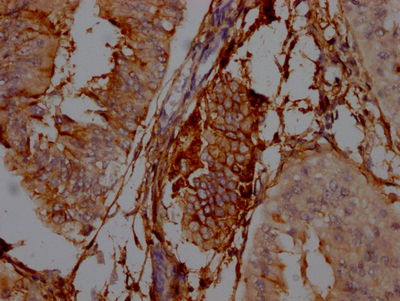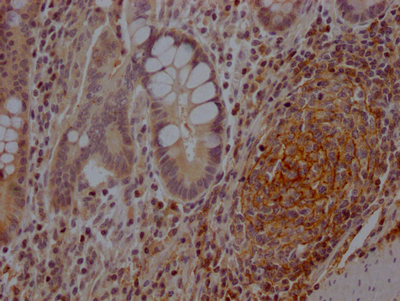NT5E, also called CD73, is an ecto-5′-nucleotidase responsible for the hydrolysis of extracellular adenosine monophosphate (AMP) into adenosine and inorganic phosphate. NT5E has nucleosidase activity as shown for nicotinamide adenine dinucleotide and nicotinamide mononucleotide. NT5E has been identified as a regulator of epithelial ion transport in physiological settings, protecting mucosal hydration. Adenosine produced by NT5E has been shown to inhibit inflammatory immune responses via a negative feedback loop on neutrophils that express the adenosine receptor. Arterial calcification is a rare autosomal recessive vascular disease caused by NT5E deficiency.
The NT5E antibody genes were cloned from B cells that were derived from immunized animals with A synthesized peptide derived from human CD73 and then introduced into the plasma vectors, which were transfected into mammalian cell lines for up-scaling expression. The product was purified by A synthesized peptide derived from human CD73 to obtain the recombinant antibody against NT5E. This recombinant NT5E antibody is reactive with the NT5E protein from Human. It is recommended for use in the ELISA, IHC.







